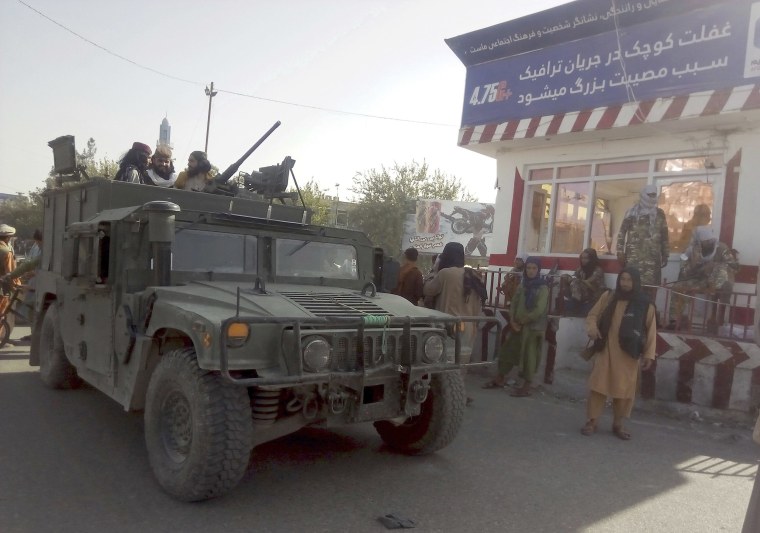There's an old cliché that says victory has a thousand fathers, but defeat is an orphan. But as the Taliban reclaims control over Afghanistan, there are more than a few parents responsible for the ignoble end of the United States' longest war.
Among the principal questions is why the Afghan government collapsed so quickly. The Biden administration feared that the Taliban would overrun the Afghan army in time, but the expectation was that the process would take a year and a half. It instead took weeks.
A New York Times report over the weekend helped shine a light on the precipitous fall:
Commanders did know that the afflictions of the Afghan forces had never been cured: the deep corruption, the failure by the government to pay many Afghan soldiers and police officers for months, the defections, the soldiers sent to the front without adequate food and water, let alone arms.... Mr. Biden's aides say that the persistence of those problems reinforced his belief that the United States could not prop up the Afghan government and military in perpetuity.
Those beliefs were, of course, correct. After two decades, the Afghan military remained hollow. The foreign troops that were supposed to keep the Taliban at bay weren't properly equipped or even paid.
And why did the Afghan government fail so spectacularly to prepare? In part because it assumed the United States' seemingly endless war would continue indefinitely. A Wall Street Journal report added:
Mr. Ghani had ample warning of the American departure after the Trump administration signed the February 2020 agreement with the Taliban that called on all U.S. forces and contractors to leave by May 2021. Yet, the Afghan government failed to adjust its military footprint to match the new reality. Many officials didn't believe in their hearts that the Americans would actually leave.
And because they assumed we would continue to prop up their military and their government, Afghan officials did not fully prepare for our withdrawal -- which was far more serious than they wanted to believe.
But to focus on the recent disaster is to overlook the mistakes that led to this endpoint. The United States invaded Afghanistan 20 years ago with an ambiguous mission and no meaningful plan for long-term success. When U.S. forces had the Taliban on the run, and its leaders were ready to deal, the Bush/Cheney administration passed on an important opportunity.
In 2003, the Republican administration thought the smart move would be to divide its focus and launch a disastrous war in Iraq, all while trying to create a Western-style democracy in Afghanistan.
Michele Flournoy, one of the architects of President Obama's troop surge in Afghanistan in 2010, told the Washington Post, "You look at the Afghan constitution that was created in Bonn [in 2001] and it was trying to create a Western democracy. In retrospect, the United States and its allies got it really wrong from the very beginning. The bar was set based on our democratic ideals, not on what was sustainable or workable in an Afghan context."
As the Afghan government struggled to overcome corruption and incompetence, the prospects of a stable Afghan future largely evaporated. It was against this backdrop that the Trump administration negotiated a deal with the Taliban that left the insurgent force primed for success.
It is painful to see these developments unfold in Afghanistan, but the road to this point is long. Extending it was not a realistic solution.

